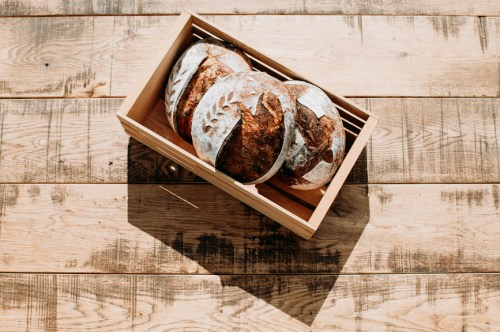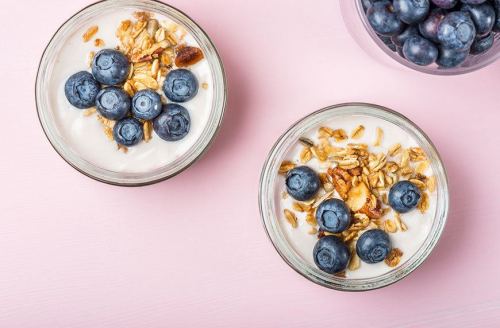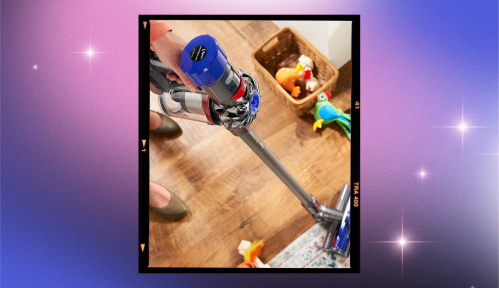It can be tough to cut through all the wellness talk on social media—eat this, not that… yada yada (“tough” being understatement of the year). One food group often demonized is bread… and we’re here to set the record straight once and for all, so listen up.
Experts in This Article
South Carolina-based gastroenterologist and author of Fiber Fueled
In case you have any doubts, bread—and sourdough in particular—has garnered the seal of approval from registered dietitians, longevity experts, and gastroenterologists. Capeesh?! In fact, all three of these nutrition and wellness experts firmly believe that sourdough bread can, and should, be a part of a healthy, well-balanced diet. Phew.
That said, there’s some homework involved: You need to make sure you’re getting the good stuff. So, let’s delve into what a gastroenterologist looks for when shopping for sourdough bread at the market—because you certainly don’t want to go home with a bummer boule of sourdough bread.
4 tips for buying the most gut-healthy sourdough bread
We’re all for #duuuupes when it comes to expensive skincare products or never-in-stock Birkenstocks, but when it comes to sourdough bread, we won’t budge on getting the real deal. Thankfully, we’re not alone.
According to Will Bulsiewicz, MD, a gastroenterologist and New York Times bestselling author of The Fiber Fueled Cookbook, not all sourdough is created equal. In a recent Instagram post, Dr. Bulsiewicz delves into the top tips for buying the most gut-healthy sourdough bread.
1. Get to know your local baker
There’s no denying that making sourdough from scratch is truly a very time-consuming process and labor of love. As such, buying from your local bakery is a great alternative, especially when you’re pressed for time or simply prefer the convenience. That said, Dr. Bulsiewicz recommends buying locally whenever possible and getting to know your communities bakeries to learn more about what they use to prepare their sourdough in-house. Aside from supporting small, local businesses, buying from local bakers helps ensure you know exactly what you’re getting, how it’s made, and that it’s as fresh as possible.
Aside from supporting small, local businesses, buying from local bakers helps ensure you know exactly what you’re getting, how it’s made, and that it’s as fresh as possible.
2. Find out if the bread is made from sourdough starter
For sourdough bread to be considered, well, sourdough, it must come from a sourdough starter. Make sense, right? Sourdough starter is where the prime gut health benefits lie, thanks to the slow fermentation process—you know, the bread and butter of sourdough—that produces natural probiotics (aka good gut bacteria) when making sourdough starter from scratch.
However, Dr. Bulsiewicz says you may be surprised to learn that sometimes folks will add vinegar to simply replicate that sour-like taste of sourdough without actually relying on fermented starter, which essentially defeats the purpose. That’s to say: All you have to do is simply ask your local baker how they’re making their bread dough. And if gut health is the goal, always purchase sourdough bread made from sourdough starter.
3. The shorter the ingredient list, the better
Another indicator of good-quality sourdough for Dr. Bulsiewicz is a short, plain, and simple ingredient list. This may include ingredients like wheat flour, rye flour, spelt flour, filtered water, and sea salt. That’s to say: When it comes to sourdough bread, less is always more, and the fewer preservatives or unnecessary filler ingredients used, the better it will be for gut health.
4. Sourdough bread shouldn’t be leavened solely with yeast
Again, we reiterate that true sourdough bread is derived from sourdough starter. Not vinegar, and definitely not yeast. Period. According to a recent Instagram post by Dan Buettner, a National Geographic reporter, longevity expert, and founder of the Blue Zones, sourdough bread is part of a longevity diet, but it all comes down to getting the right kind. Buettner says that sourdough bread is an integral part of Ikarian and Sardinian diets and is even consumed with every meal. The key is that it comes from sourdough starter that has lactobacillus, a bacteria that metabolizes most of the gluten and lowers the glycemic load of bread.
Overripe bananas? This banana bread recipe is the perfect remedy:
Sign Up for Our Daily Newsletter
Get all the latest in wellness, trends, food, fitness, beauty, and more delivered right to your inbox.
Got it, you've been added to our email list.










